Past Presidents
Starting with the most recent, Hunter College has had 13 permanent presidents.
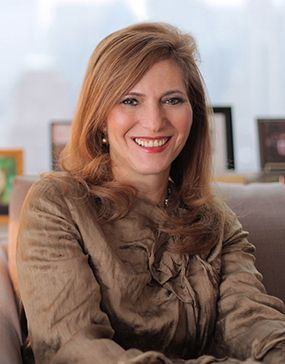 Jennifer J. Raab
Jennifer J. Raab
Order: 13th
Dates: June 2001 - June 2023
Jennifer J. Raab served for 22 years as President of Hunter College — the largest college in the CUNY system, with more than 24,000 students, five schools, and an annual operating budget of more than $250 million.
During her time at Hunter, President Raab led its successful transformation from an open-admissions institution to a selective, highly ranked college. Under her leadership, graduation and retention rates rose markedly, and hundreds of Hunter students earned prestigious awards — including two Rhodes, two Marshall, two Truman, five Schwarzman, five Luce, and seven Goldwater scholarships along with six Soros Fellowships. The college routinely was named a Fulbright Scholarship Leader by the State Department during her tenure, and was called the “crown jewel of the CUNY system” by the Princeton Review.
During President Raab’s tenure, which began in 2001, Hunter significantly increased its government grants and awards while raising more than $530 million in private support for the college. She helped broker a $52 million gift from Leonard A. Lauder — the largest gift given to a single CUNY institution. Her Mother’s Day Scholarship Program, launched in 2005 as a way to celebrate the thousands of mothers, grandmothers, aunts, and sisters who were Hunter grads, raised more than $9 million in scholarship funds for Hunter students.
Under President Raab’s leadership, Hunter’s faculty secured more than $1 billion in research awards and grants, providing hundreds of students with life-changing exposure to lab and field science. Hunter’s research contributed to many scientific fields, including astronomy, climate change, and community health and medicine, and affected cancer treatments while playing a major role in helping end the HIV epidemic.
President Raab also launched a $50 million library renovation; built a floor in the new Belfer Research Building at Weill Cornell Medical College; constructed a $131 million School of Social Work in East Harlem; added a new facility in Tribeca for Hunter’s renowned art graduate program and gallery; purchased and renovated a townhouse on E. 67th Street to house Hunter’s theater department; and completed the $25 million restoration of the historic 1908 Roosevelt House on E. 65th Street — now the Roosevelt House Public Policy Institute at Hunter College.
Before coming to Hunter, President Raab worked as a litigator at Cravath, Swaine & Moore and Paul, Weiss until she was appointed Chair of the New York City Landmarks Preservation Commission, a post she held from 1994 to 2001.
She sat on the Board of Directors of Compuware Corporation; was named a member of the Council on Foreign Relations; serves on the Steering Committee of the Association for a Better New York; serves on the advisory boards of the National Institute of Social Sciences and WOMEN.NYC; and sat on the Board of Directors of The After School Corporation, United Way New York, and the One To World Foundation. She was also a member of the 2004–05 New York City Charter Revision Commission.
A graduate of Hunter College High School (whose campus she oversaw), President Raab received a BA with distinction in all subjects from Cornell University in 1977, an MPA from Princeton in 1979, and a J.D. cum laude from Harvard Law School in 1985. In 2016, President Raab’s achievements were recognized by her election to the American Academy of Arts and Sciences. In 2022, she was awarded the Gold Honor Medal for distinguished service to society and humanity by the National Institute of Social Sciences.
David Armand Caputo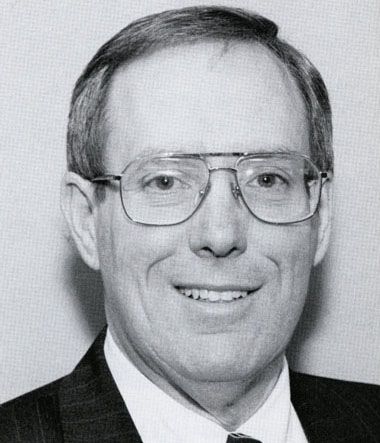
Order: 12th
Dates: 1995 - 2000
A native of Pennsylvania, Dr. Caputo came to Hunter from Purdue University where he had been Dean of the School of Liberal Arts for eight years and a member of the faculty from 1969. A political scientist who specialized in elections, he has a BA in government from Miami University in Ohio, and earned an MA and PhD from Yale in political science. During his tenure at Hunter, a new master plan was completed, all departments providing support for information technology were merged into the Office of Instructional Computing and Information Technology, and the Center for Distance Learning opened in the School of Social Work. Other major accomplishments included the reorganizations of the academic divisions: the School of Nursing and the School of Health Sciences became the Schools of the Health Professions, the Division of Programs in Education became the new School of Education, and the new School of Arts and Sciences resulted from the merger of the divisions of the Humanities and Arts, Sciences and Mathematics, and Social Sciences.
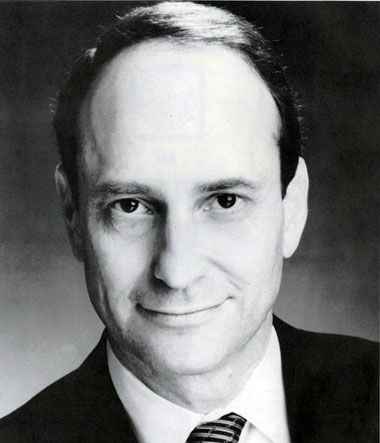 Paul LeClerc
Paul LeClerc
Order: 11th
Dates: 1988 - 1993
An eminent French scholar and a renowned author of books on Voltaire and the French Enlightenment, Dr. Paul LeClerc became Hunter’s President on September 1, 1988. Prior to coming to Hunter, Dr. LeClerc compiled a distinguished record as an academic leader, serving as CUNY’s University Dean for Academic Affairs, Acting Vice Chancellor for Academic Affairs, and Provost and Deputy President at Baruch College. He has also been a consultant to the National Endowment for the Humanities. Dr. LeClerc received his Ph.D. in French from Columbia University.
Dr. LeClerc established the Hunter College Foundation to provide a vehicle through which alumni and friends of the College could support Hunter at a time of great financial difficulties. He played an active role in fund-raising activities, increasing alumni giving five-fold and raising more than $35 million for new capital projects.
On his initiative, Hunter adopted a new multicultural curriculum recognized as the most comprehensive and diverse curriculum of its kind in the nation. He spurred the revitalization of the library and involved Hunter in manifold community health activities, especially those focused on fighting AIDS and drug addiction. Under his leadership, Hunter became the first-choice college of all freshmen applying to a senior college of The City University of New York.
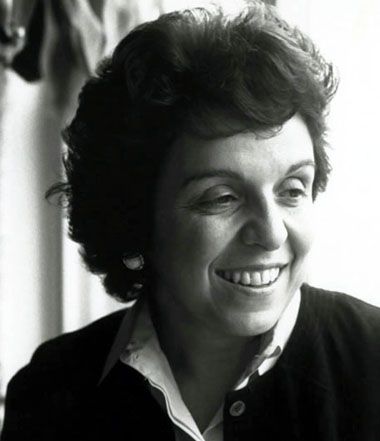 Donna E. Shalala
Donna E. Shalala
Order: 10th
Dates: 1980 - 1988
Educator and urbanist, Dr. Shalala came to Hunter from the U.S. Department of Housing and Urban Development, where she served as Assistant Secretary for Policy Development and Research during the Carter years. A native of Ohio, her participation in the civic life of the City began while she was chair of the Program in Politics and Education at Teachers College, Columbia: she was appointed a director and treasurer of the Municipal Assistance Corporation, the body that helped to rescue the City during the fiscal crisis of the mid-1970s.
During her tenure, the College’s spirit and physical plant were renewed. The twin towers were built; the Social Work and Brookdale buildings were renovated, grant and award funds leaped from $2.5 to $11 million; graduate enrollments rose; hirings often exceeded affirmative action and equal opportunity goals; an employee assistance program was introduced; a student services program, including an expanded athletic program and a child care center, was established; and academic support and retention strategies began to have an impact on the diverse student body. Her “humanizing” strategy brought national recognition and a strong sense of community to the College.
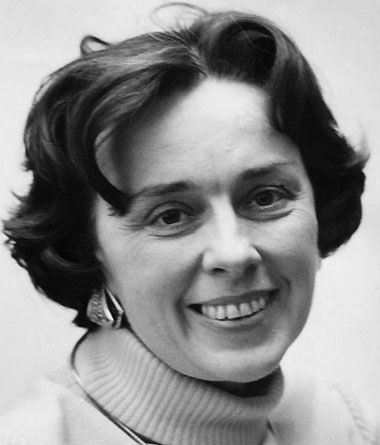 Jacqueline Grennan Wexler
Jacqueline Grennan Wexler
Order: 9th
Dates: 1970 - 1979
Mrs. Wexler began her teaching career in 1951 at a parochial academy in El Paso. In 1959, she joined the faculty of Webster College in St. Louis and soon rose to the presidency. During her term of office, she was released from her vows as a nun and received permission to transfer the college from religious to lay control. Among her activities in those years was service on President Kennedy’s Advisory Panel on Research & Development in Education and on President Johnson’s Task Force on Urban Educational Opportunities and the steering committee of Project Head Start. As president of Hunter during the height of the Vietnam War and the City’s fiscal crisis, Mrs. Wexler “kept the College whole”: the architectural plans for the twin towers were drawn up, the Women’s Studies program was launched, the renovation of the Brookdale Center on Aging was founded, and a new governance system with student representation – The Hunter Senate – was established.
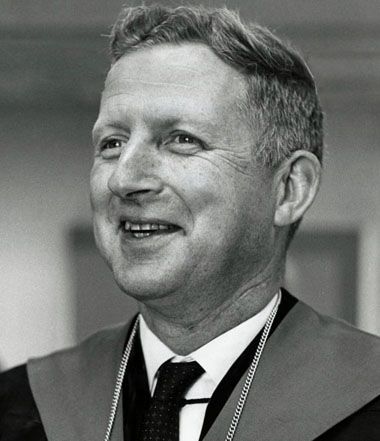 Robert D. Cross
Robert D. Cross
Order: 8th
Dates: 1967 - 1969
A native of Iowa who would later earn degrees at Harvard, serve as a bomber pilot over Europe during World War II, and teach at Swarthmore and Bryn Mawr, Dr. Cross came to Hunter from Columbia University, where he was chair of the History Department. During his administration, the Institute (now School) of Health Sciences, the Department of Black & Puerto Rican Studies, and the SEEK program were launched, and the basic organization of the College into four divisions – sciences and mathematics, humanities and arts, social sciences and programs in education – was determined.
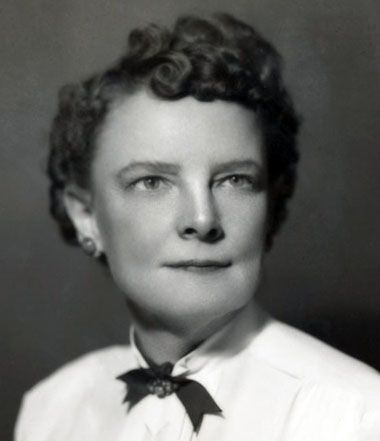 Mary Latimer Gambrell
Mary Latimer Gambrell
Order: 7th
Dates: February 1967 - July 1967
President from April to October 1965, and again from September 1966 to January 1967, Dr. Gambrell joined the faculty of Hunter in 1937 as an instructor of history; as a full professor, she chaired the department from 1948 to 1962 and served as dean of the faculties from 1961 to 1966. During her brief presidency, she planned for the emergence of the Bronx campus as an independent college, acquired the Bellevue (now Hunter-Bellevue) School of Nursing and its residence hall, and saw the School of Social Work into its new building.
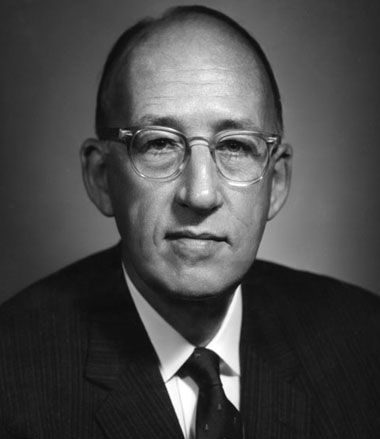 John Meng
John Meng
Order: 6th
Dates: 1960 - 1967
Born in Cleveland, Ohio, Dr. Meng began teaching in 1931 as an “assistant in politics” at the Catholic University of America, from which he earned his degrees. In 1938, he went to Queens College, which he served as chair of the department of political science and, later, as chair of the division of social sciences. He joined the Hunter faculty in 1948 as a professor of history and soon was appointed the first dean of administration, in which position he also had executive control of the Bronx campus (today, Lehman College). During his term of office, Dr. Meng presided over the expansion of graduate and undergraduate enrollment in the liberal arts and teacher education; he advocated, and secured approval for, the College’s transition to co-education; and he strongly supported the creation of the City University.
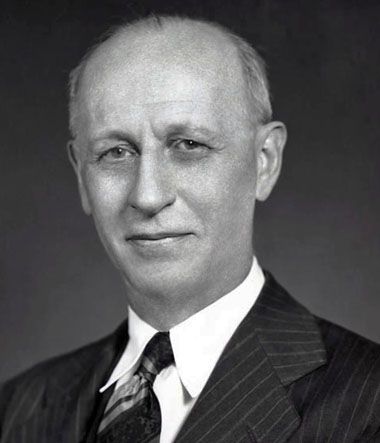 George Nauman Shuster
George Nauman Shuster
Order: 5th
Dates: 1940 - 1960
George Shuster, one of the most distinguished Roman Catholic laymen of his time, began his multifaceted career as a sergeant in the Intelligence Service during World War I. He later worked as a journalist, a professor of English, a translator, and a writer of fiction, literary history and criticism, and books on 20th-century Germany. HE was director of the first research on population control done under Catholic auspices; its findings led a group of 37 Roman Catholic scholars, under his chairmanship, to recommend a change in the church’s traditional position on birth control. In 1945, as delegate to the Conference on International Education, he helped to create UNESCO, and for a brief period after leaving Hunter, he served as its United States representative. And while on a year’s leave of absence from the College during the occupation of Germany, he served as land commissioner for Bavaria.
During his twenty years as president, Dr. Shuster acquired Roosevelt House, founded the Concert series, established the graduate-level School of Social Work, and developed the division of nursing education and a graduate program that emphasized training teachers of the physically handicapped.
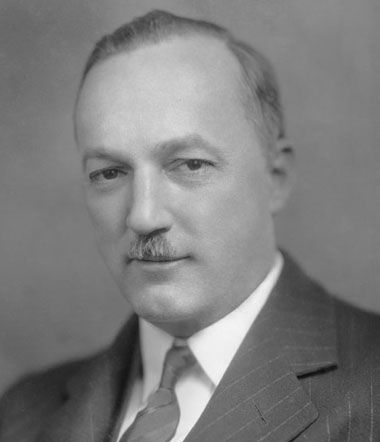 Eugene A. Colligan
Eugene A. Colligan
Order: 4th
Dates: 1933 - 1940
Eugene Colligan received his early education in the Brooklyn public schools and was graduated from Eastern District High School. Unlike his immediate predecessors, he did not attend CCNY; he received his BS from Teachers College and his AM and PhD from Fordham. Like them, however, he held positions as teacher, principal, and associate superintendent of schools in the City. Two years after he was chosen as Hunter’s 4th president, Columbia University awarded him the University Medal for Excellence in recognition of his service to the cause of education.
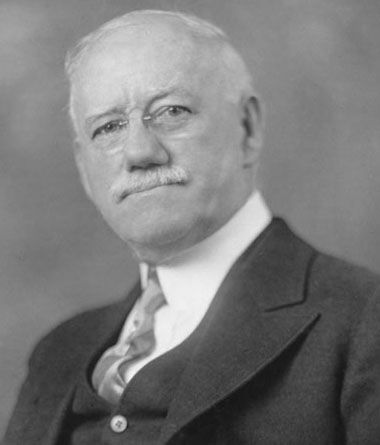 James Michael Kieran
James Michael Kieran
Order: 3rd
Dates: 1929 - 1933
A native New Yorker, whose education, through college, was received in the publicly supported schools of the City, Dr. Kieran joined the faculty of the Normal College in 1904 as professor of philosophy and education following twenty years as a teacher and principal in the public schools and as an assistant and associate superintendent of schools. In 1927 he was appointed dean of the faculty of education; in 1928 he served as acting president. Construction of Hunter’s Bronx campus began during his term of office.
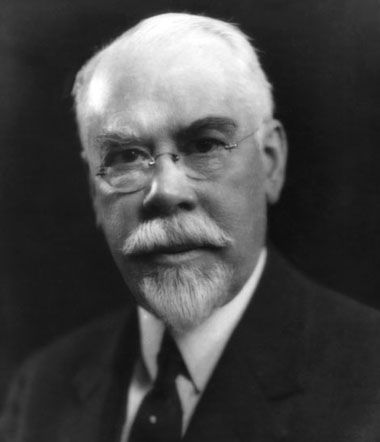 George Samler Davis
George Samler Davis
Order: 2nd
Dates: 1908 - 1929
A product of the public school system of the City, Dr. Davis graduated from the College of the City of New York and then served the system first as a teacher and principal, later as assistant superintendent of schools for Manhattan and the Bronx, and ultimately, following the consolidation of the five boroughs, as associate superintendent. During his presidency, the summer, evening, and extension sessions were established and the Normal College was accredited and named for its founder, Thomas Hunter.
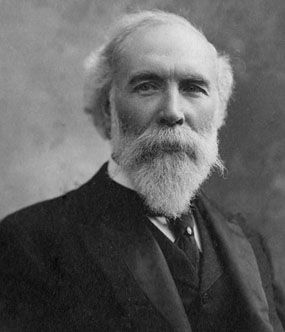 Thomas Hunter
Thomas Hunter
Order: 1st
Dates: 1870-1906
Compelled to leave Ireland because he was “a republican and revolutionist,” Thomas Hunter arrived in New York in 1850 and, for lack of other employment, soon found himself teaching drawing, then reading, writing, and arithmetic at “No. 35,” a public grammar school for boys. He had found his métier; historians of American education rank his work, both practical and theoretical, with that of John Dewey. Rising swiftly in his now-chosen profession, he soon became the school’s principal, then also the founder and principal of the first free evening high school in America.
He became president of the newly established “Female Normal and High School” on Fourth Street and Broadway when it opened on St. Valentine’s Day in 1870. The original Park Avenue building, for which he himself drew the plans, opened in September 1873. This first publicly supported college for women in America took on the name of its founder in 1914.

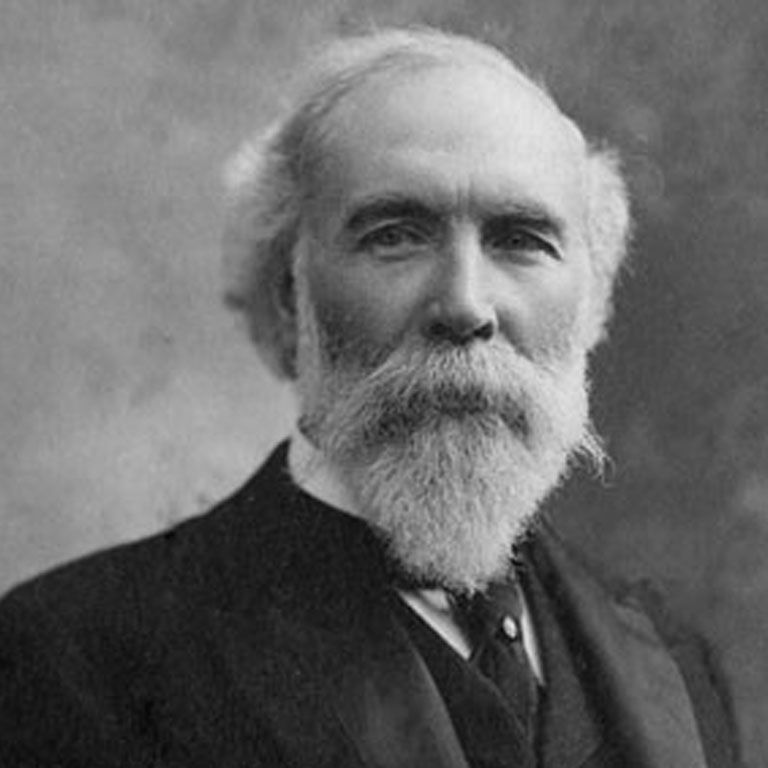
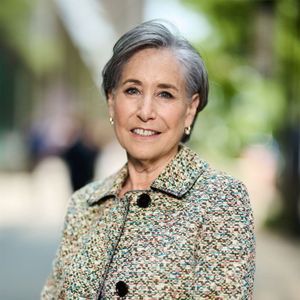 Ann Kirschner
Ann Kirschner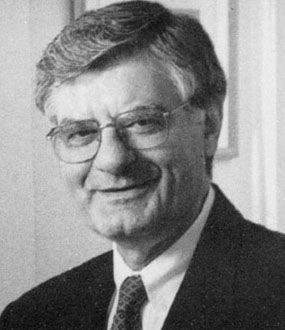 Evangelos John Gizis
Evangelos John Gizis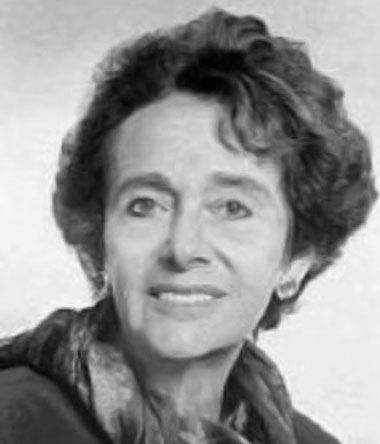 Blanche Davis Blank
Blanche Davis Blank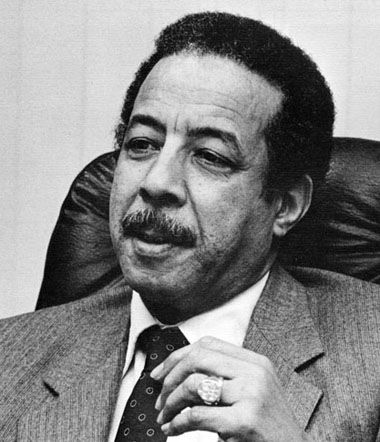 Tilden John LeMelle
Tilden John LeMelle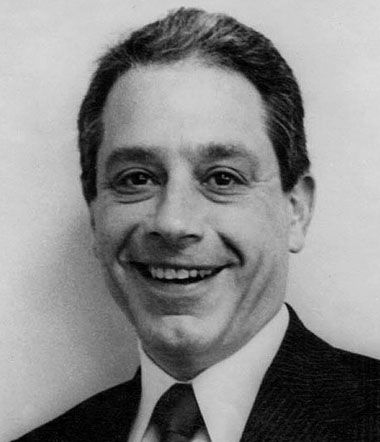 Joseph Shenker
Joseph Shenker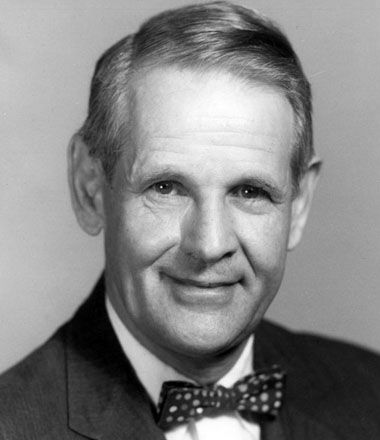 F. Joachim Weyl
F. Joachim Weyl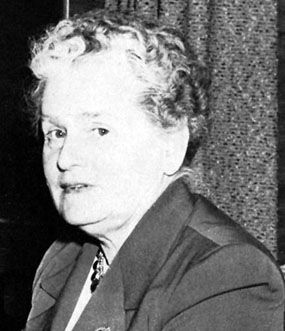 Eleanor Hunsdon Grady
Eleanor Hunsdon Grady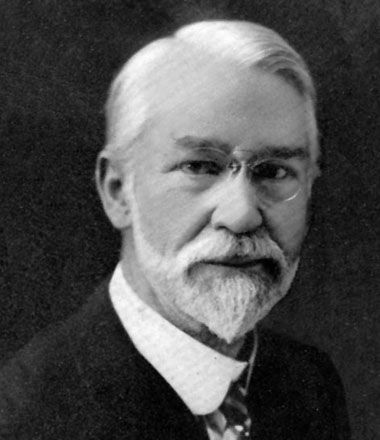 Edward Sanford Burgess
Edward Sanford Burgess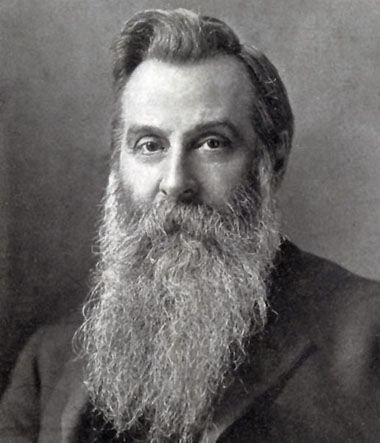 Joseph A. Gillet
Joseph A. Gillet